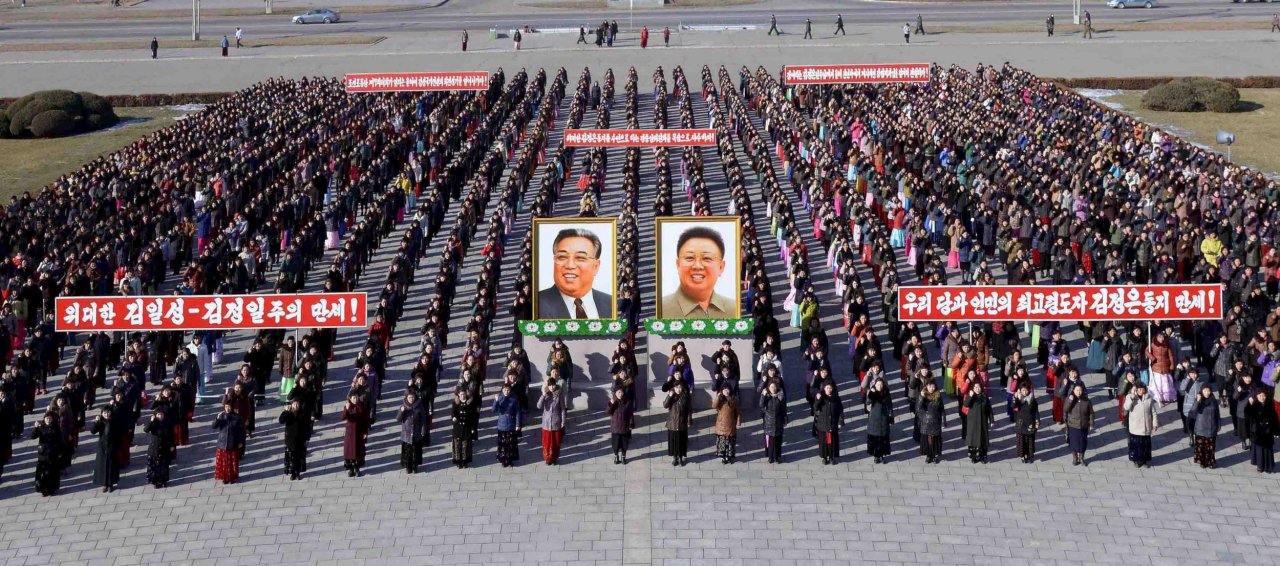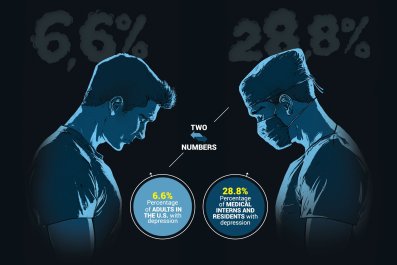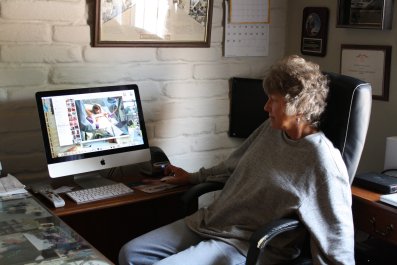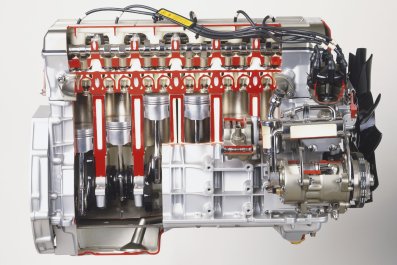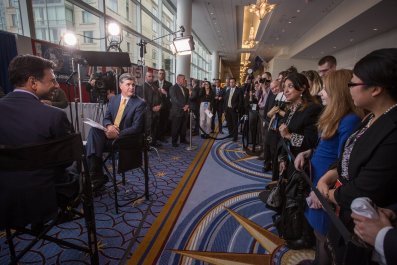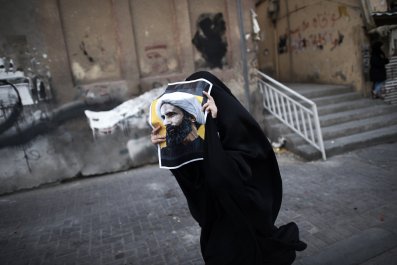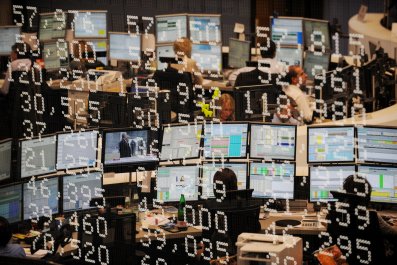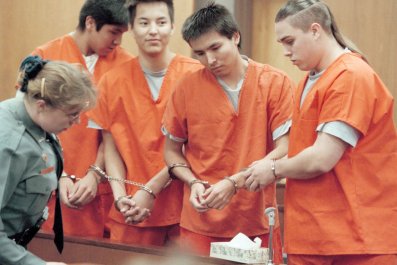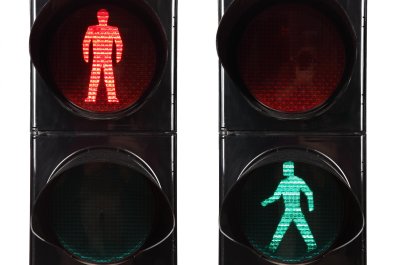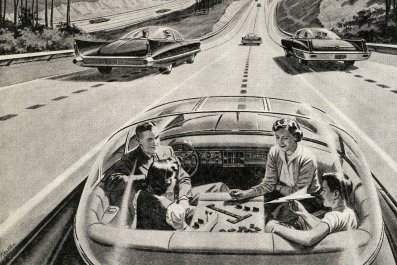You've got to hand it to the North Koreans; they do it all the time. The rest of the world is focused on other dangerous places and issues: an unfolding civil war in the Islamic world; spreading jihadi terrorism; refugees streaming by the millions out of war-torn Syria; China's stock market crashing; and oil prices plummeting.
Then, on cue, pudgy little Kim Jong Un—just as his father, Kim Jong Il, used to—does something that reminds us all: Oh, damn, that place again!
North Korea conducted its fourth test of a nuclear weapon on January 6. Pyongyang immediately announced that the bomb it detonated was a two-stage thermonuclear device, otherwise known as a hydrogen bomb. The likelihood that this was not an H-bomb is what officials in Washington, and their echo chamber in the mainstream media, focused on in the test's immediate aftermath.
Experts believe the bomb Pyongyang detonated was probably a hybrid, in which hydrogen isotopes are used to increase yields on conventional fission devices. But as North Korea watcher Stephan Haggard of the Peterson Institute for International Economics says, "The main point is not in the technical details but in the obvious: North Korea is actively developing its nuclear capacity and in parallel its missile capabilities as well."
As in the aftermath of its previous three tests, the outside world now focuses on what it can do about North Korea and its nuclear program. And however depressing it may be to hear, the likely answer (again) is: not nearly enough to persuade Pyongyang to get rid of its nukes.
The central dilemma Washington and its allies confront is this: Pyongyang believes the possession of nuclear weapons is a guarantor of regime survival. The maintenance of the Kim family dynasty is the top priority in Pyongyang. Everything else is secondary. And having nukes in his pocket—10 to 16 of them already, according to intelligence analysts, with dozens more coming—is Kim's ultimate security blanket. No one will start a war on the Korean Peninsula as long as he's got them. This is no doubt why the North Korean government, in its statement announcing the test, stressed that Pyongyang would be a "responsible" nuclear power and would not use its weapons first in any conflict. The outside world—China included—views that pledge with great skepticism.
There was a time when it seemed as if the North was amenable to trading away its nuclear program for money and energy. President Bill Clinton negotiated the so-called Agreed Framework in 1994, which was supposed to do just that. And the regime did take some steps to rein in its ability to produce plutonium-fueled nuclear bombs. But early in the George W. Bush administration, the U.S. discovered that Pyongyang had a secret program to develop a uranium bomb, and whatever progress that had been made toward a nuclear resolution blew up. In Bush's second term, the White House was persuaded by its allies—South Korea and Japan—to join China in the so-called Six-Party Talks, which again tried to push the nuclear boulder up the hill.
Those talks failed, and President Barack Obama concluded in his first term that exerting the effort to get Pyongyang to stand down on its nukes was not likely to pay off. Instead, he directed his diplomatic energy toward Iran, which had signaled a willingness to make a deal on its nuclear program.
Now comes, as Haggard says, the familiar script: international condemnation of North Korea, a convening of the U.N. Security Council, talk about tightened sanctions and all eyes looking hopefully toward Beijing. China could, if it wishes, inflict enough economic pain, as Pyongyang's only significant trading partner, to prompt North Korea to "alter its trajectory," as Haggard puts it.
There are steps the U.S. and other governments can take to try to coerce Kim into better behavior. Obama, oddly, has described North Korea as one of the most heavily sanctioned countries in the world. But former CIA analyst Bruce Klingner says that's not true. "Washington has targeted fewer North Korean entities than those of the Balkans, Burma, Cuba, Iran and Zimbabwe," he says. Klingner argues that the U.S. should sanction all foreign companies and financial institutions assisting North Korea in its nuclear and missile programs. He also argues that Washington should ban financial institutions that conduct business with North Korean violators of U.N. resolutions from access to the U.S. financial network—a step that would be aimed largely at China. And, in fact, both houses of the U.S. Congress have legislation ready to go that would do exactly that—legislation that to date the Obama administration has opposed.
So the central question, as it has been after every previous nuclear test, is: What will Beijing do in response to Pyongyang's latest provocation? The initial response was not encouraging to those hoping for a "We're fed up, let's bring the hammer down" moment. The foreign ministry called for a resumption of the Six-Party Talks—a response that exasperated one longtime Japanese diplomat who works on North Korea. "We're going to need a lot more than that from the Chinese," he said.
There is little doubt China can hurt the North. It can shut down oil and gasoline exports overnight, as well as the trade in goods that goes back and forth between the countries every day. If that was coupled with efforts from South Korea and Russia to shut down their limited economic engagement with Pyongyang, North Korea would pretty much be left to freeze in the dark.
The question is: Would that matter? Recall that in the late 1990s, thanks not so much to economic sanctions but to horrendous domestic policy in Pyongyang, tens of thousands of North Koreans perished in a mass famine. Desperate refugees poured across the border into China. And yet the regime, then run by Kim's father, never buckled.
Pyongyang deserves censure for again violating U.N. strictures against both its nuclear and missile programs. But as in the past, there are limits on how far Beijing will go. In an era in which its economic miracle is fading and its labor market weakening, the last thing China wants is to become a magnet again for significant numbers of refugees. And Beijing still, geopolitically speaking, would rather North Korea exist than not. (China does not see much advantage to a unified Korea allied with the U.S. on its border.) Couple that with Pyongyang's obvious determination to remain a nuclear power and reality intrudes: With Kim Jong Un and North Korea, what you see is what you're going to get—over and over again.



